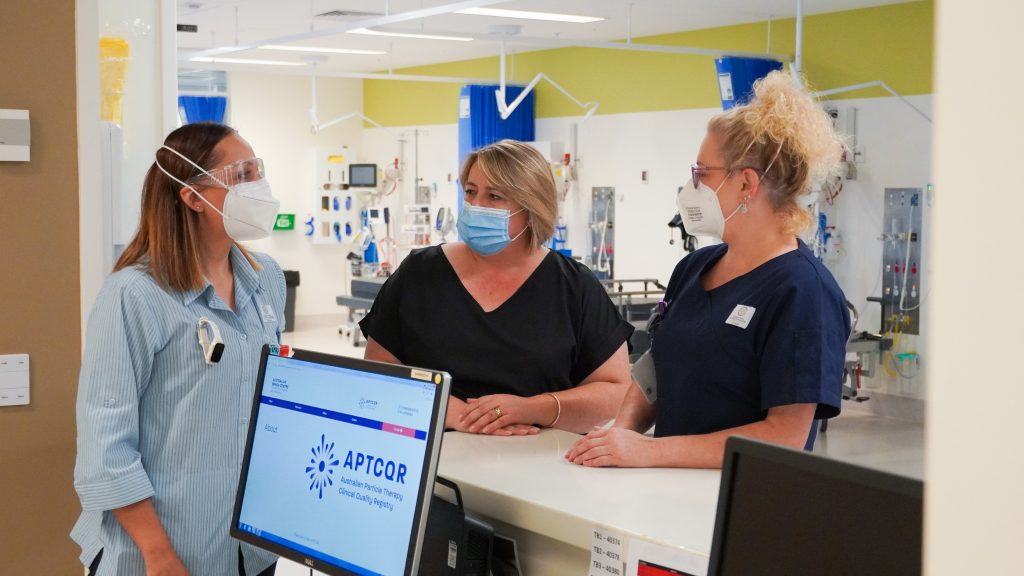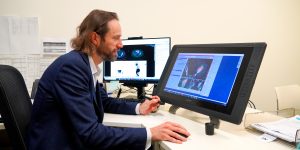The Australian Particle Therapy Clinical Quality Registry has launched this week and nurses at the Royal Adelaide Hospital (RAH), Department of Radiation Oncology, will be essential to the vital cancer therapy research.
The registry will provide the valuable data needed for researchers to compare the long-term safety, efficacy, and cost-effectiveness of proton therapy in comparison to conventional x-ray photon radiotherapy.
The revolutionary proton beam therapy delivers powerful beams of energy precisely into cancer tissue while minimising the damage to nearby healthy tissues. This enables treatment around delicate areas such as the head, neck, and spine, and is beneficial for young patients who are still developing physically.
Nurses fundamental
The new registry is an opt-out approach which is common for large registries of this kind. Nurses will inform patients about the registry, and ensure they understand they’ll have 14 days to withdraw if they choose.
Principle investigator and project manager for the registry, Kelly Skelton, believes that this involvement by nurses is a strength, as they are knowledgeable and accessible for patients throughout the 14-day opt-out period.
“We have an experienced group of radiation oncology nurses that are well-aware of the registry requirements and can educate and inform patients about the study,’ she said.
“Utilising nurses that are already seeing these patients, it makes much more sense for recruitment to happen that way.”
Gabby Vigar, Radiation Oncology Nurse Unit Manager at the RAH, “jumped at the chance” to be able to contribute to the world-class research.
Nurses already run educational sessions for patients when they start radiotherapy, so Gabby agrees that informing patients about the registry at the same time is beneficial.
“Adding this piece into that education session made perfect sense. We’re already talking to the patients, we already know some of the patients, so I think nurses are well-placed to be able to educate patients on this registry,” she said.
The proton vs photon therapy research
Proton therapy is a safe and effective treatment and is listed on the Medicare Benefits Schedule as an approved treatment for some cancers.
However, before the treatment can be made available to treat a wider range of cancers, the new national registry will help researchers determine the short- and long-term toxicities and treatment outcomes of proton therapy compared to conventional photon therapy.
The starting point of the research is to capture data related to traditional photon radiation treatment at the RAH.
Researchers will then compare this to proton therapy data they will collect in the future at The Australian Bragg Centre for Proton Therapy and Research, which is due to be operational from 2025. It is currently under construction in the heart of South Australia’s prestigious health and biomedical research precinct and will be the first centre of its kind in the Southern Hemisphere.
More info
The Australian Particle Therapy Clinical Quality Registry is proudly funded by the Hospital Research Foundation Group.



